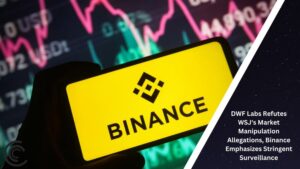Key Takeaways:
- The central bank of the Philippines, Bangko Sentral ng Pilipinas, strongly supports stablecoins, according to a top executive at the organization.
- Melchor Plabasan, the BSP’s director of technology risk and innovation, revealed the organization’s perspective.
The Philippines’ central bank, Bangko Sentral ng Pilipinas (BSP), believes stablecoins would be crucial to enhancing payments in the nation.
Director Mhel Plabasan of Bangko Sentral ng Pilipinas, the country’s central bank, said that the institution was leaning toward stablecoins. He pointed out that stablecoins had the potential to improve the nation’s overall payment system.
A series of tests on the potential of stablecoins to settle payments alongside fiat currency had already been performed by the central bank.
BSP highlighted that it will work with private enterprises to examine the potential after the initial results of its tests indicated promise.
In the end, if we talk about new technology, we can’t really govern what we don’t understand, therefore we’ve been working with the private sector, explained Plabasan.
“As a result, it’s critical that we continually collaborate and learn with the private sector. We are on the path to employing stablecoins to improve digital payments.“
The director of the central bank also emphasized the significance of market regulation. He thinks it is important for authorities to constantly monitor the area and work with the private sector to improve their understanding of the industry.
Binance, a prominent cryptocurrency trading platform, is currently considering expanding its presence in the island nation of the Philippines. In a press interview, Changpeng Zhao, CEO, announced that they want to purchase the two licenses required for Binance’s operations in the Philippines.
A three-year moratorium on new virtual asset service provider (VASP) licenses has been imposed by the Philippine central bank in an effort to strike a balance between the potential risks posed by digital assets and the quickly growing cryptocurrency market.
“The Bangko Sentral understands that VAs [virtual assets] represent numerous dangers that may undermine economic stability, even as they present opportunities to enable much greater access to financial services at lower costs,” the central bank stated.
It will be simple to use stablecoins in the Philippines after regulatory and technical barriers have been overcome. According to Chainalysis research, the nation’s young, tech-savvy populace is second only to Vietnam in terms of the adoption of digital assets.
In the midst of the pandemic, play-to-earn games like Axie Infinity and other decentralized finance (DeFi) applications gave many Filipinos their first exposure to digital assets.










